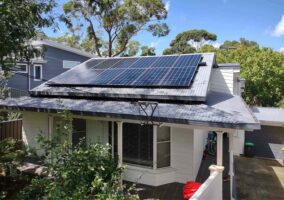The Clean Energy Finance Corporation shows no sign of packing its bags and closing down its operations, as the Abbott government would wish it to do.
The CEFC says in its latest annual report that it is in “active discussions” with developers of more than 30 new projects with a total value of more than $3 billion.
This is on top of the $931 million it has already invested in projects worth a total of $3.2 billion – out of around 150 project ideas worth $11 billion pitched to it in the last year or so.
The Abbott government has vowed to abolish the CEFC, but has been unable to pass legislation through the Senate, and under a deal with Clive Palmer has agreed to defer such legislation until the new year.
The Coalition argues that it is a waste of money, investing in projects that other banks wouldn’t touch, and it could save hundred of millions by abolishing it.
The CEFC says, however, that it will be self-funding this year, will deliver a return on its investment of 7 per cent (twice the bond rate), and has brought in all the major Australian banks, and numerous other banks, into the market.
“Interest in CEFC finance remains high,” chairwoman Jillian Broadbent writes in the latest annual report.
What is interesting are that technologies are now being brought in for consideration: they are focused on distributed generation and storage, energy efficiency, and waste-to-energy.
“The CEFC has demonstrated its capability and its potential to contribute to the economic transition of Australia’s future energy mix,” Broadbent writes.
“The CEFC is playing a valuable role as an effective catalyst for the public and private sector to overcome current market failures in financing carbon reducing investment at scale.
“Its activities are developing the capabilities and capacity for lowering emissions and contributing to Australia’s global competitiveness in a carbon constrained world.
Broadbent noted that the pace of technological innovation and consumer driven market transformation towards renewable energy, distributed low carbon energy solutions, smart networks and storage is accelerating in major markets like the US, China and Europe.
“There are growth and productivity benefits to the Australian economy from participation in this transformation.”
CEFC paid out nearly $10 million in salaries and wages out of a total expenditure of $24 million.








